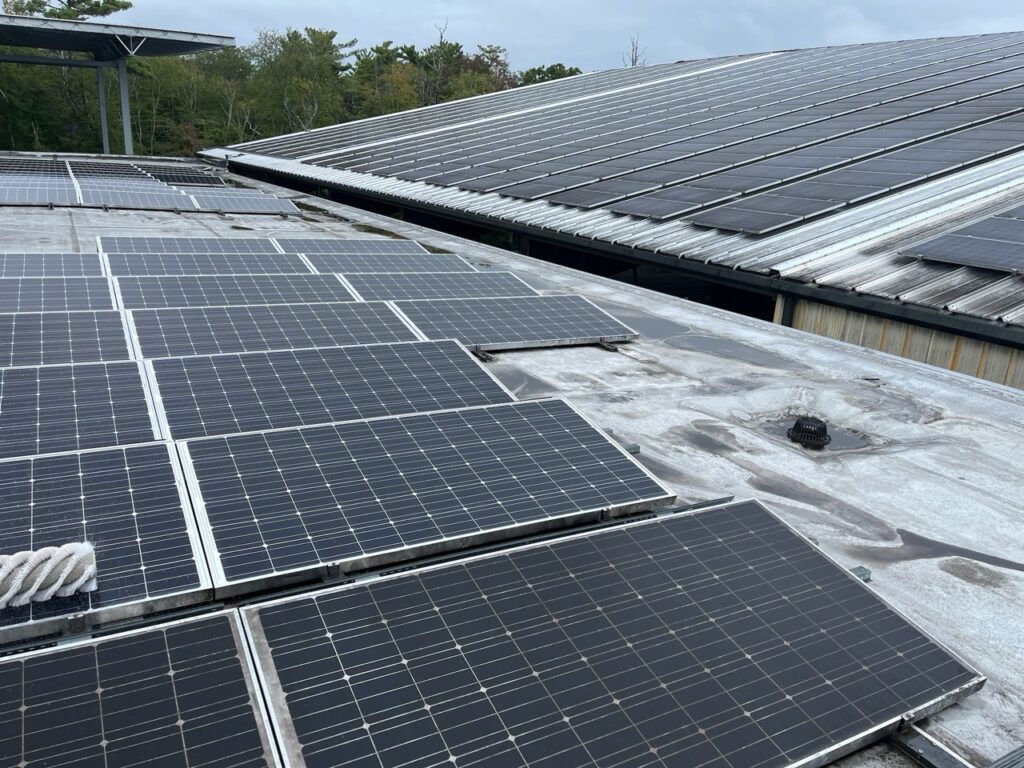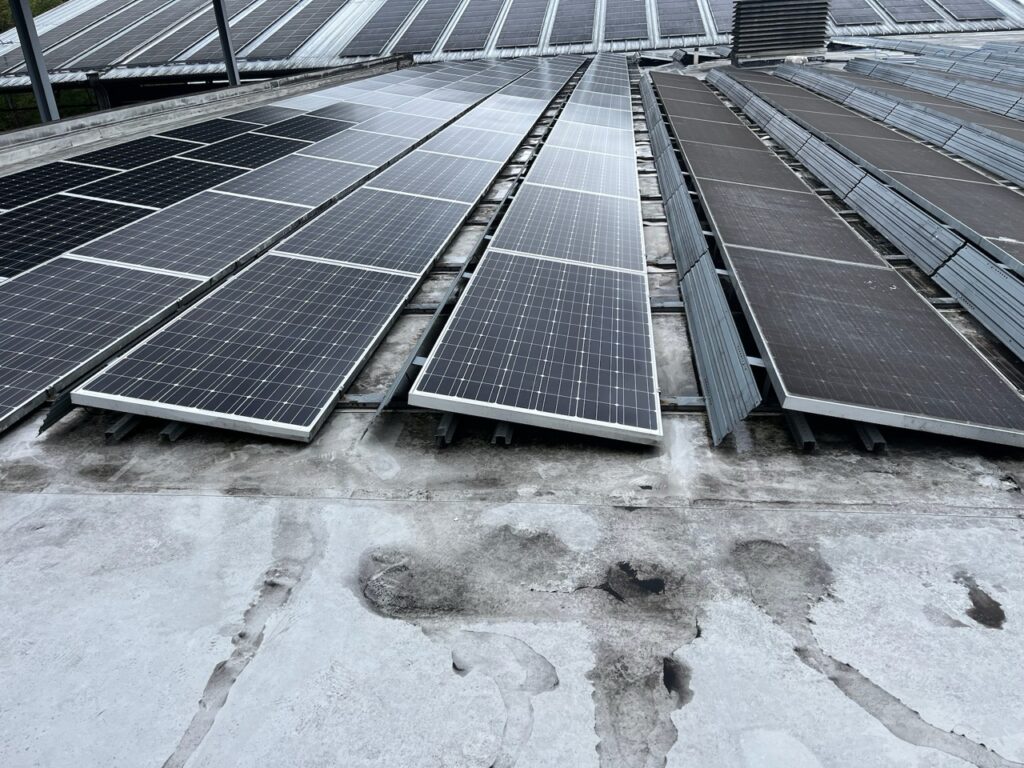Rooftop solar panels are a wise investment for homeowners across New England, offering long-term savings and cleaner energy. But regular maintenance- including cleaning- is essential to keep your system performing at its best. New England’s climate and environmental conditions pose specific challenges affecting solar panel efficiency.
Let’s look at why cleaning your panels is necessary and what makes the job more complex in this part of the country.
Why Clean Rooftop Solar Panels?
Solar panels are low-maintenance but not maintenance-free. Dirt, debris, bird droppings, pollen, and salt can accumulate over time, reducing sunlight absorption and lowering your system’s energy output.
Some believe that rain is enough to clean panels. Rain can rinse away some loose dust, but it often mixes with pollen, pollution, and salt—leaving behind a thin residue that still blocks light and can shorten panel life. Regular rooftop solar panel cleaning can help you produce more power and save more money.

Seasonal Challenges in New England
Winter: Snow and Ice
New England winters can bury rooftop solar panels under snow, stopping energy production and creating a challenge for removal. Scraping snow with hard tools can scratch the panel glass, and ice can make things even more dangerous.
Spring: Pollen and Tree Debris
Spring brings clouds of pollen—especially from pine trees—that can stick to your rooftop panels. Add in blossoms, sap, and bird activity, and your panels may end up coated with a tough film that lowers efficiency.
Summer: Humidity and Salt Exposure
Inland areas see high humidity, which can lead to mold and mildew growth on solar panels. Along the coast, salt spray builds up. Salt dims your panels and can corrode mounting brackets and wiring. Homes like Cape Cod, Portland, and Providence are especially vulnerable to salt exposure and need more frequent and careful cleaning.
Fall: Leaves and Storm Debris
In autumn, falling leaves and pine needles can cover your panels. If trees surround your home, debris can trap moisture and create shaded hot spots. Occasional storms can blow grime onto panels. In Concord, Montpelier, and Hartford—where older trees are abundant and fall foliage is dense—rooftop panels are particularly prone to seasonal debris buildup.

Roof Access and Structural Challenges
Many New England homes have steep roofs, suitable for shedding snow but hard to access. Icy, leaf-covered, or wet shingles increase the risk of falls. Dormers, chimneys, and skylights can also get in the way. Cleaning solar panels safely on steep, complex roofs is best done by trained professionals.
In Boston and Providence, many urban homes and rowhouses have tall, narrow roofs that make access even more challenging, requiring safety harnesses and specialized equipment.
Coastal-Specific Concerns
Near the ocean, salt exposure becomes a serious issue. Salt crystals carried by the wind build up on panel surfaces, dimming performance, and damaging metal components over time. In coastal areas like Cape Cod, Portland, and parts of Boston, regular professional cleaning is highly recommended.
The Best Professional Rooftop Solar Panel Cleaning
Owning solar panels in New England has benefits, but it also requires extra maintenance. With heavy snow, high humidity, coastal salt, and seasonal pollen, regular cleaning protects your investment and keeps your system efficient.
Need help maintaining your panels in the New England area? Peak Solar Pro provides safe, reliable solar panel inspections and cleaning services tailored to the region’s unique weather. Call us for a free consultation at (617) 522-4046 today or get started online here.
